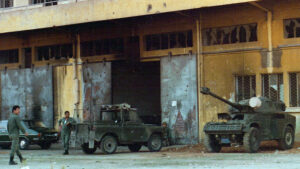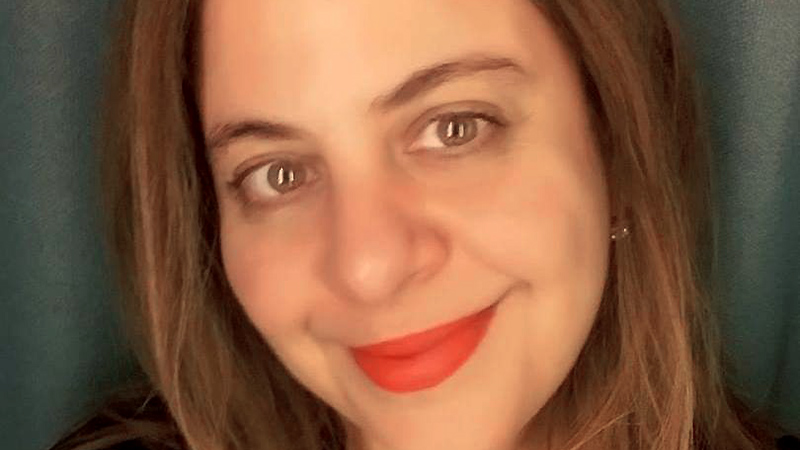Growing up in Ain El Remmaneh, the most bombarded city in Lebanon, where 15 years of the Lebanese civil war started was anything but peaceful.
Since birth, I have never understood or experienced real “peace”. The word never resonated with me. Peace was not on the same wavelength with me or my troubled country.
I remember when I was around ten years old, watching the Miss Universe pageant… or was it the Miss World show? When the contestants were asked what they want to happen in their lifetimes, most of them replied that they desire world peace. But one candidate said she wanted a cure for HIV. I was too young to understand what this virus meant at that time. My life was about surviving a war that had engulfed my country.
All I can remember was that there were days and sometimes months when there was ‘calm’. It was a lull, a phase that was called “truce” in Lebanon.
Was it a truce that the beauty pageant contestants were talking about in the eighties? Those ‘pieces’ of peace? It puzzled me. Would it last more than a year? Dare I dream, hope and believe that it could last a lifetime?
Today, as I watch the crazed appetite for conflicts the West seems to have as the Gaza war rages between Hamas and Israel, I wonder if peace is just an utopia, something only the “sophisticated” West can achieve.
But those same sophisticated Western governments always seem to have a say on how the people of the Middle East should live. So, peace in their countries means war in the Middle East. War after war, civil strife after civil strife. Start a war somewhere in the Middle East to keep the peace and the defence industry happy in their countries.
This has been the formula for decades now. The people from the Middle East feel they are in a state of perpetual conflict. They are destined for war and displacement, of brutal sectarian strife and terrorism.
I do not wish to write about victims and oppressors because I truly believe we choose our fate. But for peace to be established in the Middle East, it must be given a time and space by those in power here and in the Western world.
However, history keeps repeating itself. There is a quote from the American writer, Edith Wharton that says: “ There are two ways of spreading light: to be the candle or the mirror that reflects it.”

To answer what peace still means, we need first to reflect on its definition. Peace is defined one as freedom from disturbance. It’s a tranquil state, state or period in which there is no war or war has ended. I believe that the first definition cannot be separated from the second.
Greed is the root of evil, greed cannot come from a peaceful mind but rather from a mindset that cannot be satisfied. Greed generates envy, arrogance, hate and usually governments or people with a taste for greed have little, or principles.
The less we teach kids to compete with each other and be at ease with themselves, the more we create humans who are striving for peace.
Someone, everyone has to break the cycle and start promoting peace in the Middle East as the war in Gaza kills thousands. Maybe there is still a little girl in me, who remembers being in front of a TV, watching very beautiful women talking about peace. That little girl is now a middle-aged woman who has all her life tried to figure out how to find and spread peace.
When the sounds of gunfire echoed through the streets of my neighbourhood, I remember dreaming about having a magical wand that makes this evil thing called war disappear. As darkness descended upon my city where electricity was scarce, I knew that there were angels protecting us with their light and that there were still good people, beautiful people that wished my country peace. That gave me hope and warmth to sleep and continue living despite the hell and chaos around me.
Which brings me to Gaza and the state of war in the region. Can enemies of seven decades bury their differences and not be ruled by anger and the destruction of each other? Will there be truce or will there be peace? It’s a complicated war – all wars are – and the answers aren’t easy to find knowing the history of animosity and mutual hatred in the Middle East. – Christiane Waked is a columnist and a political analyst who covers the MENA region


Leave a Reply